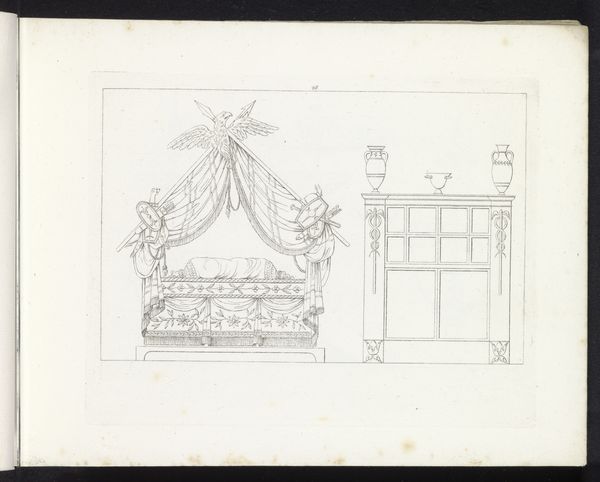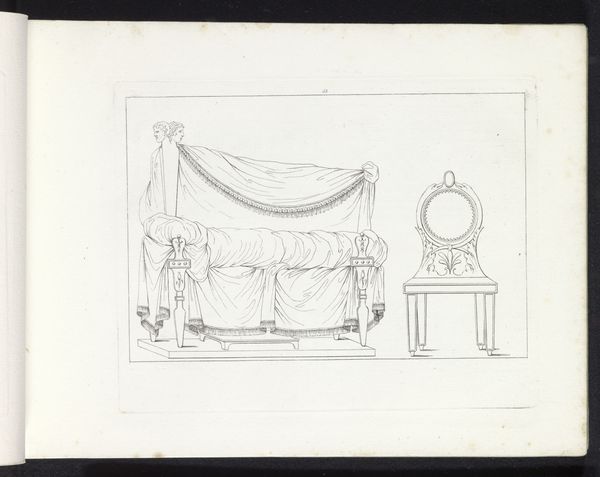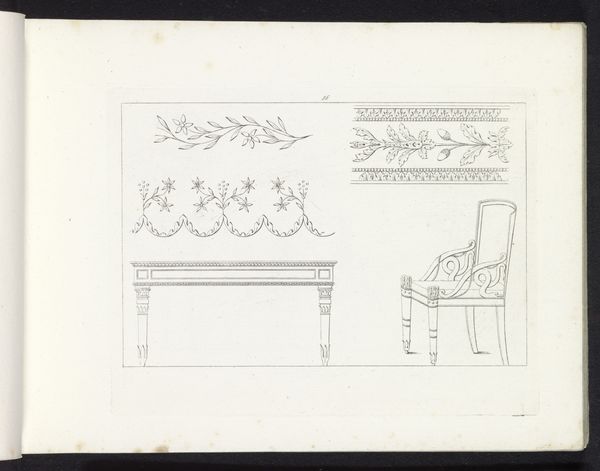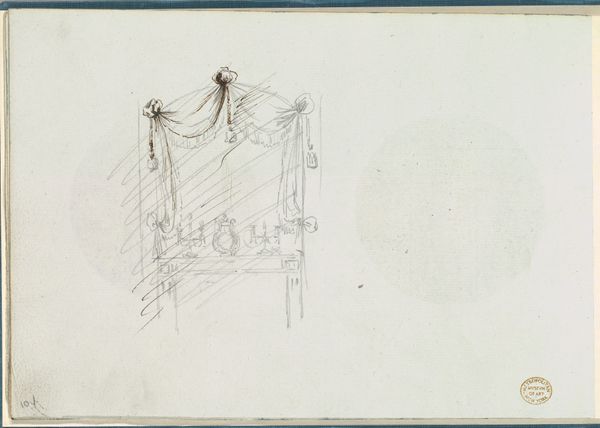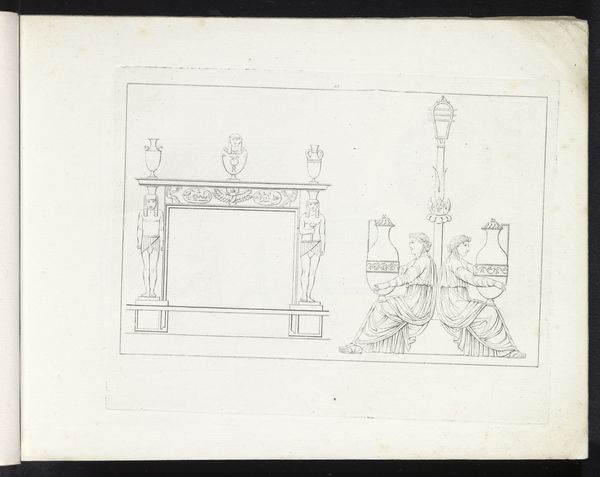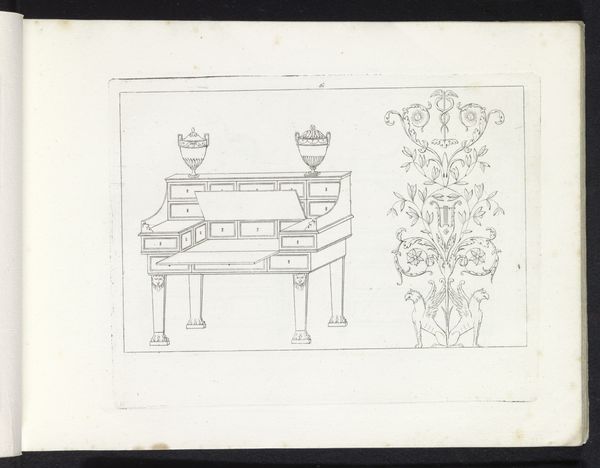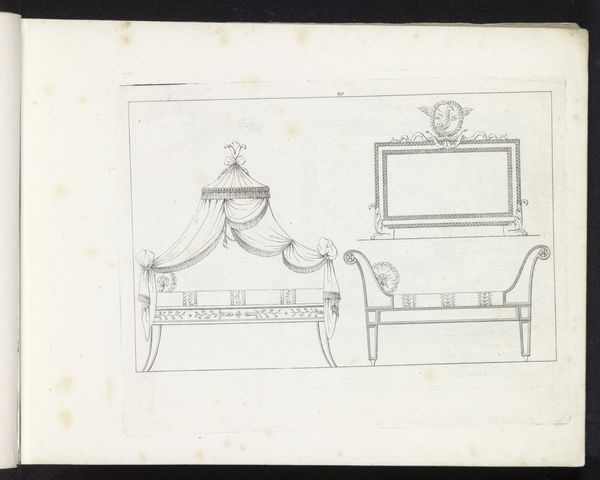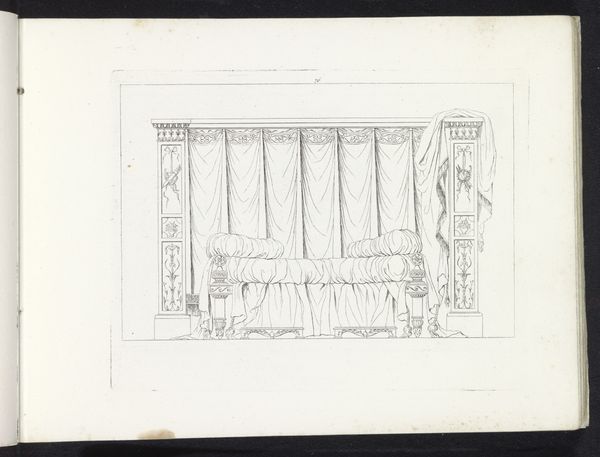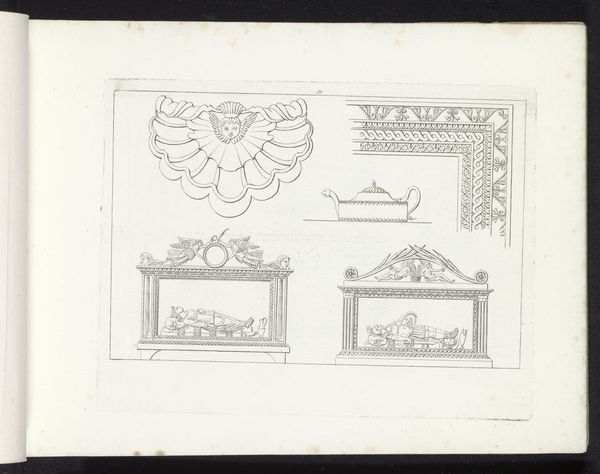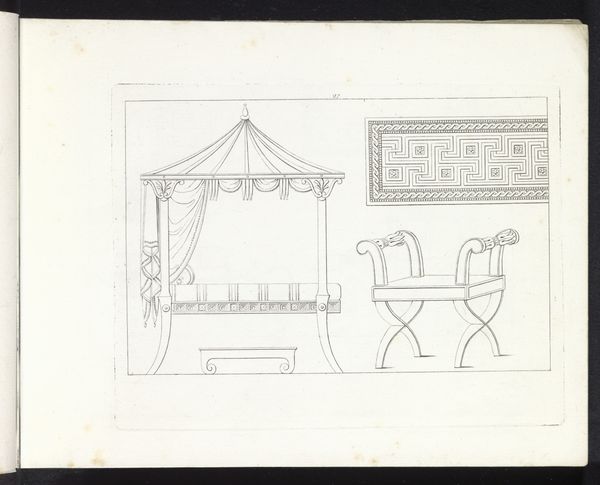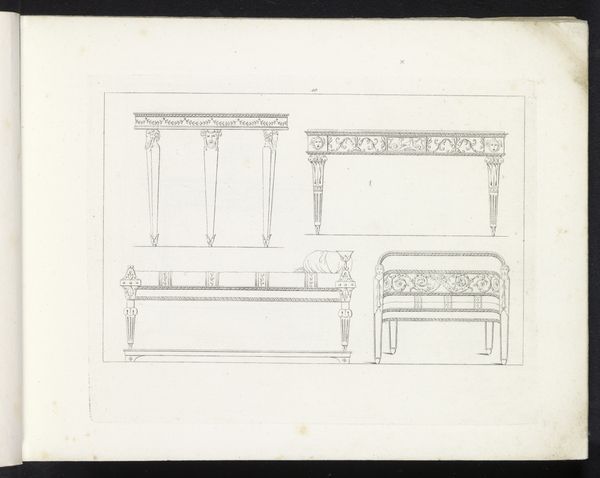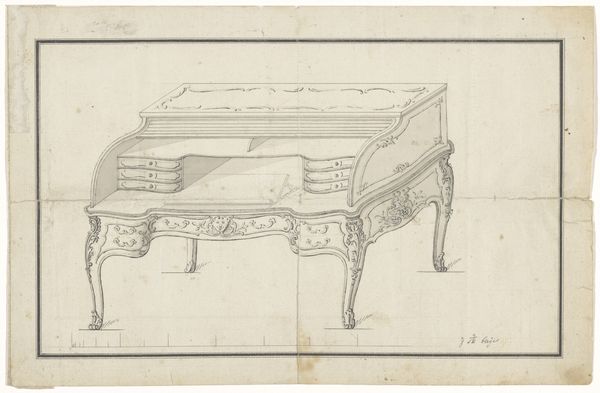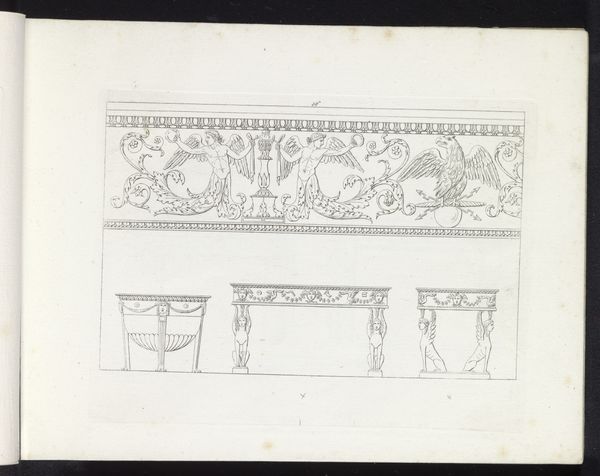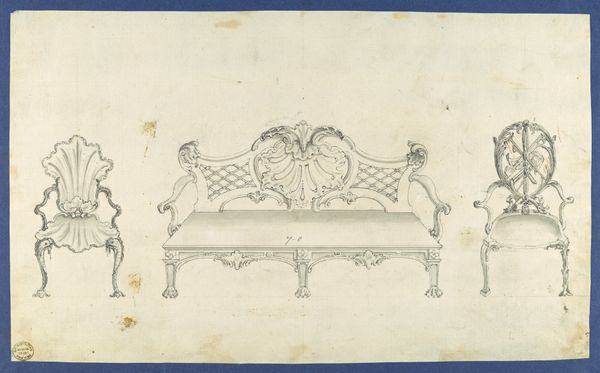
drawing, ink
#
drawing
#
neoclacissism
#
pen sketch
#
classical-realism
#
ink
#
geometric
#
line
Dimensions: height 165 mm, width 218 mm
Copyright: Rijks Museum: Open Domain
Editor: This is "Hemelbed en trofeeën," or "Four-Poster Bed and Trophies," by Pietro Ruga, made in 1817. It's an ink drawing. The image feels sparse, but intentionally so; almost diagrammatic in its precision. What do you see in this piece? Curator: The trophies flanking the bed speak volumes. Look how shields, weapons, and even sculpted figures are stacked almost haphazardly. They’re not merely decorative; they're stand-ins for the very concept of victory and power. Don't you think there’s something unsettling in juxtaposing these potent symbols of conquest with the intimacy of the bed? Editor: I hadn't thought of it that way. So the bed, usually a symbol of rest or vulnerability, is being positioned in direct contrast to those trophies? Curator: Exactly. Think of beds through history – places of birth, death, love, and dreams. By placing it in such close proximity to representations of military prowess, Ruga seems to be hinting at the ever-present shadow of conflict and power dynamics that underlie even our most private moments. What does the four poster frame convey to you? Editor: I see how those statues might mirror figures in attendance. This makes me think of both Roman emperors and more contemporary leaders being perpetually in state. Thank you for highlighting how everyday settings like the bedroom can be rife with iconography that reminds us about legacy and impermanence. Curator: It's an image that resonates through time.
Comments
No comments
Be the first to comment and join the conversation on the ultimate creative platform.
